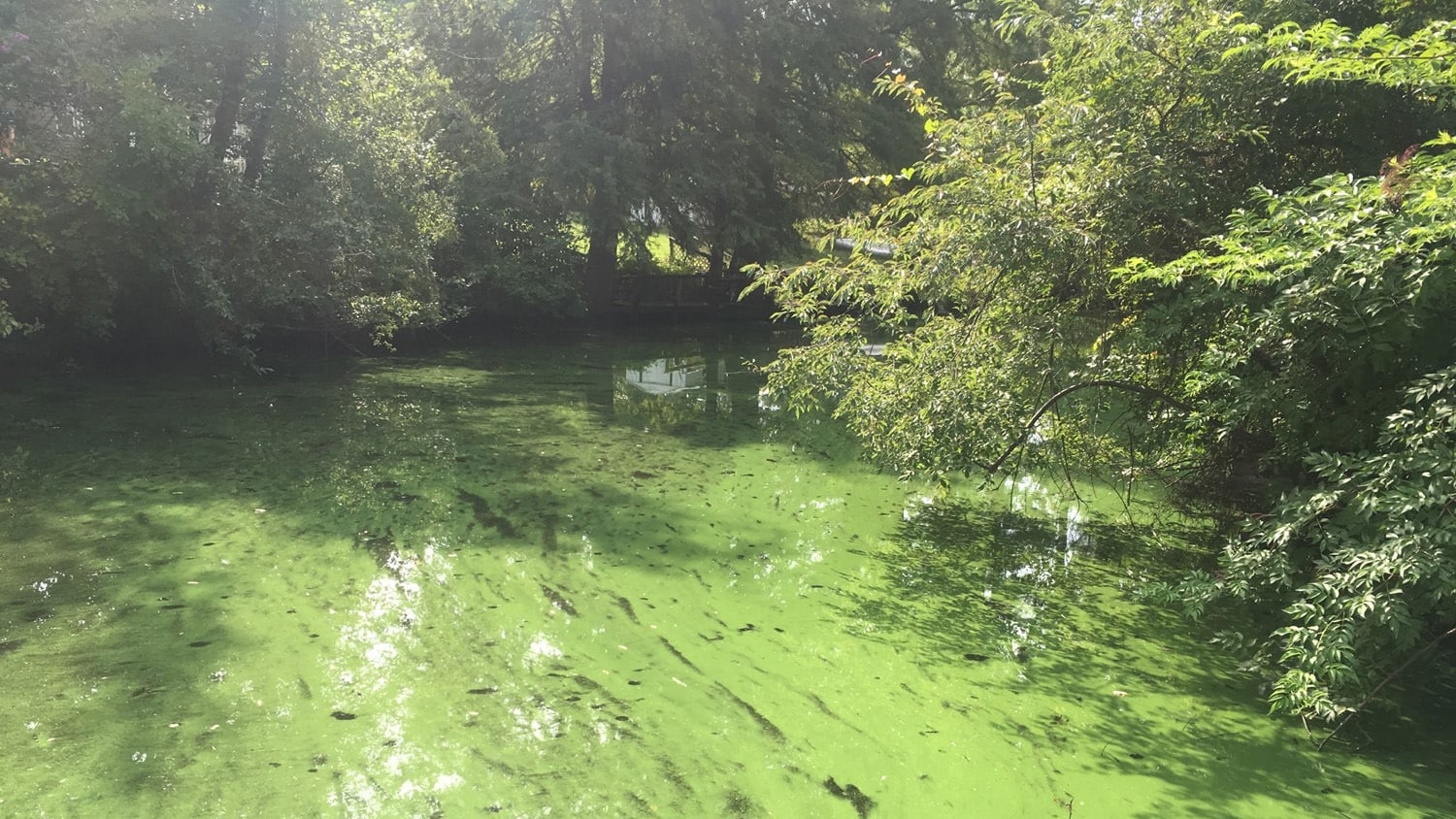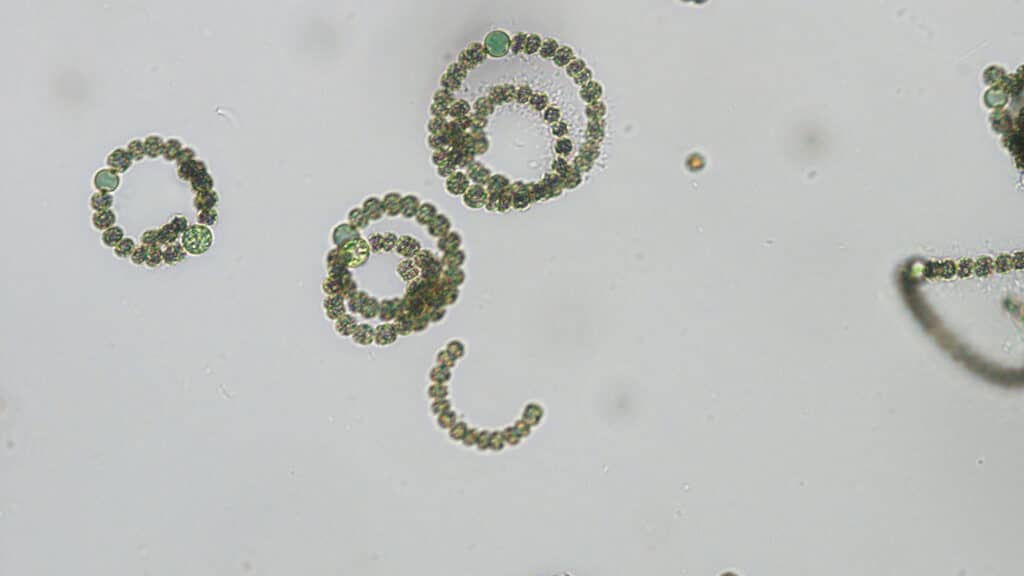NC State Receives $6.9 Million From NSF, NIEHS to Fund New Oceans and Human Health Center

Researchers from North Carolina State University have received a five-year, $6.9 million grant co-funded by the National Science Foundation and the National Institute of Environmental Health Sciences to establish the North Carolina Center for Coastal Algae, People and Environment (NC C-CAPE).
Director Astrid Schnetzer, associate professor in the Department of Marine, Earth and Atmospheric Sciences, and co-director Scott Belcher, associate professor in the Department of Biological Sciences, will lead the center. NC C-CAPE will bring together researchers from five colleges at NC State — with expertise in ocean and climate science, toxicology, epidemiology, modeling and community engagement — to study the human health risks posed by harmful cyanobacterial algal blooms in North Carolina coastal waters.
There have been growing concerns among residents and scientists about harmful algal blooms in the region, coinciding with reports of toxins present in water and seafood. However, major knowledge gaps exist regarding the environmental drivers that lead to the development of harmful algal blooms, the production of toxins and the associated human health risks. NC C-CAPE will provide the necessary research to improve cyanobacteria and toxin monitoring; inform guideline values for the safe consumption of water and seafood; deliver predictive tools to assess emergent and future toxin exposure risk; and leverage community engagement initiatives to fill data gaps and protect ocean and human health.
“Our diverse, interdisciplinary NC C-CAPE team will tackle the growing threats to the ecosystem and human health resulting from the increase in cyanobacterial blooms, an issue that will likely be exacerbated by climate change,” said Schnetzer. “The center will also actively engage with community experts and stakeholders to guide the translation and application of research findings. We’re excited about the opportunity to support public and environmental health in North Carolina communities, as well as to synergize with NC State’s existing programs to address emerging issues regarding climate change, water quality, coastal sustainability and resilience, and environmental and human health.”

NC C-CAPE will carry out three research projects. The goal of the first project is to understand the dynamics of harmful algal blooms and learn more about the presence and distribution of microcystin — a liver toxin — across the Pamlico-Albemarle Sound System, the country’s largest lagoonal estuary. They will then link spatiotemporal patterns to the contamination of seafood. The second project will define how microcystin mixtures influence mechanisms of liver toxicity in regulatory-relevant mammalian models and at-risk human populations. In the third project, researchers will work to predict microcystin distributions in water and seafood based on various environmental controls — and assess exposure risk in a changing climate. They will do so by integrating diverse data sets and coastal circulation modeling within a probabilistic modeling framework.
NC C-CAPE will also include a community engagement core that will connect with community experts and diverse stakeholders to translate research findings and implement principles of data justice for the prevention of adverse impacts of harmful algal blooms.
The project co-investigators are Bethany Cutts, associate professor in the Department of Parks, Recreation and Tourism Management, and Dan Obenour, associate professor in the Department of Civil, Construction and Environmental Engineering. Other NC State collaborators include Tal Ben-Horin in the Department of Clinical Sciences; Casey Dietrich in the Department of Civil, Construction and Environmental Engineering; Cathrine Hoyo in the Department of Biological Sciences; Natalie Nelson in the Department of Biological and Agricultural Engineering; and Ryan Paerl in the Department of Marine, Earth and Atmospheric Sciences.
The National Science Foundation and the National Institutes of Health will support NC C-CAPE under award numbers OCE-2414792 and 1P01ES035542-01, respectively.
This post was originally published in College of Sciences News.


